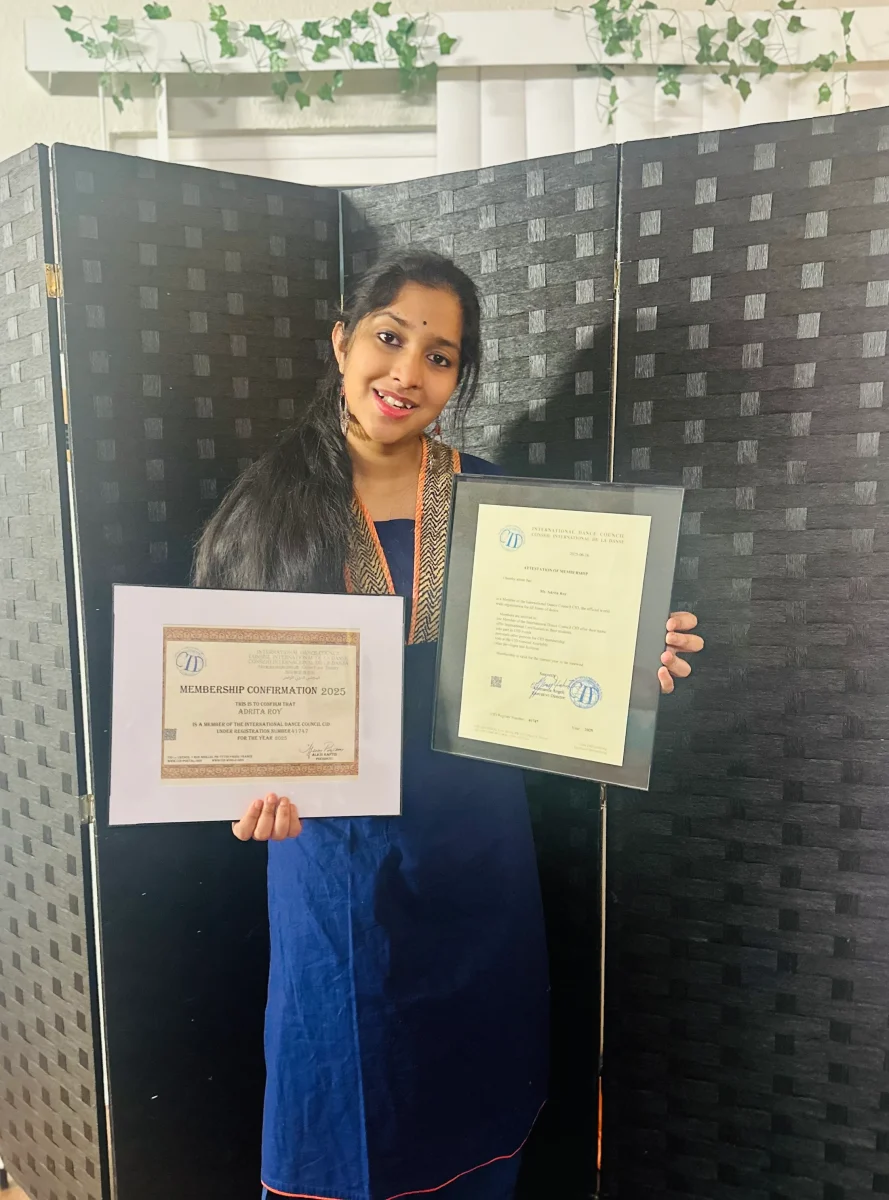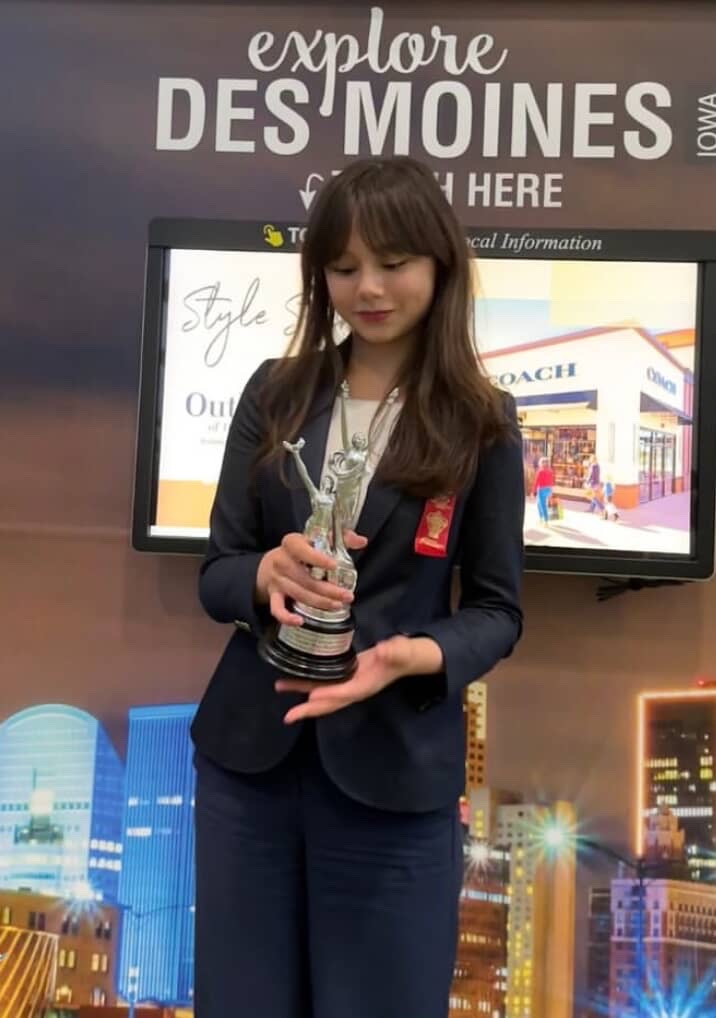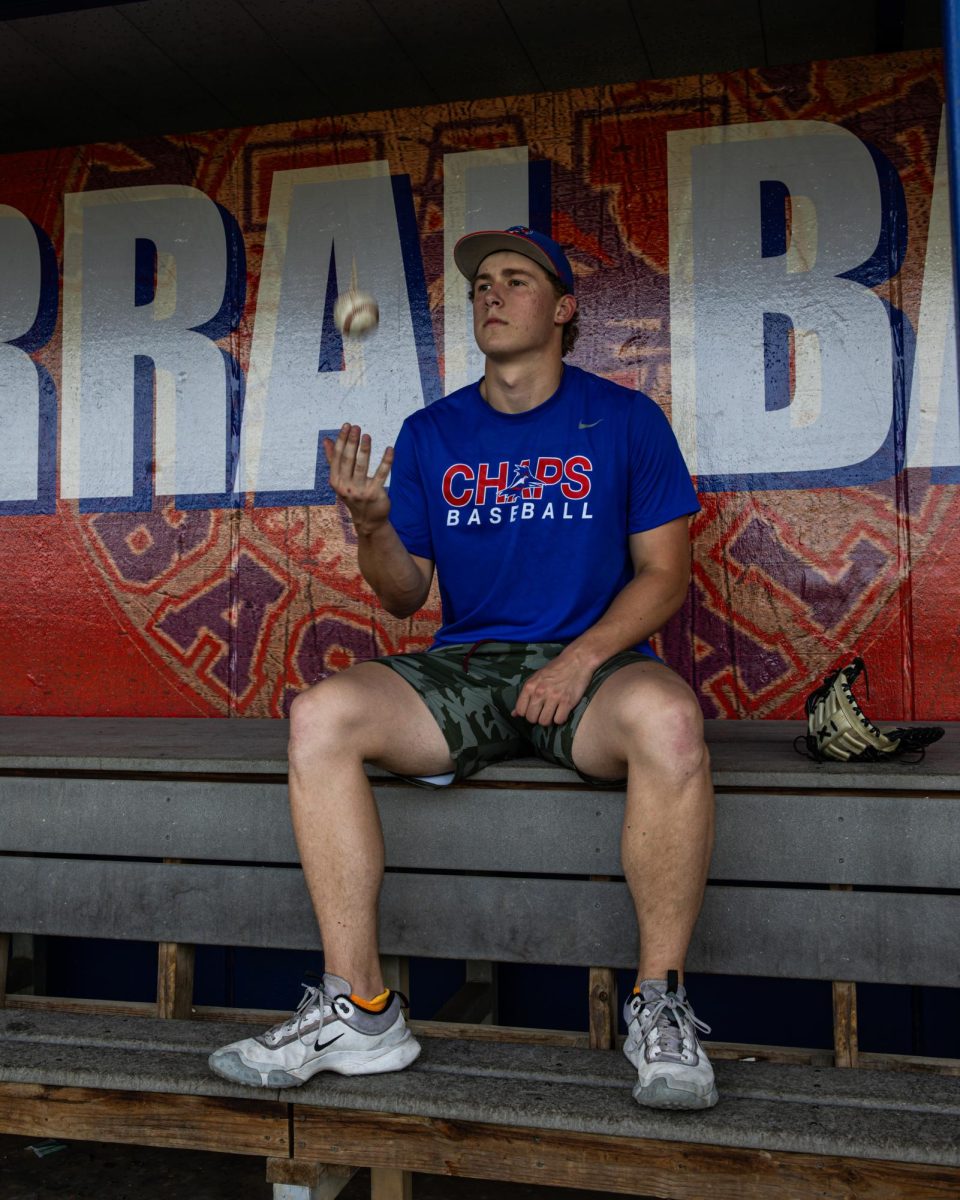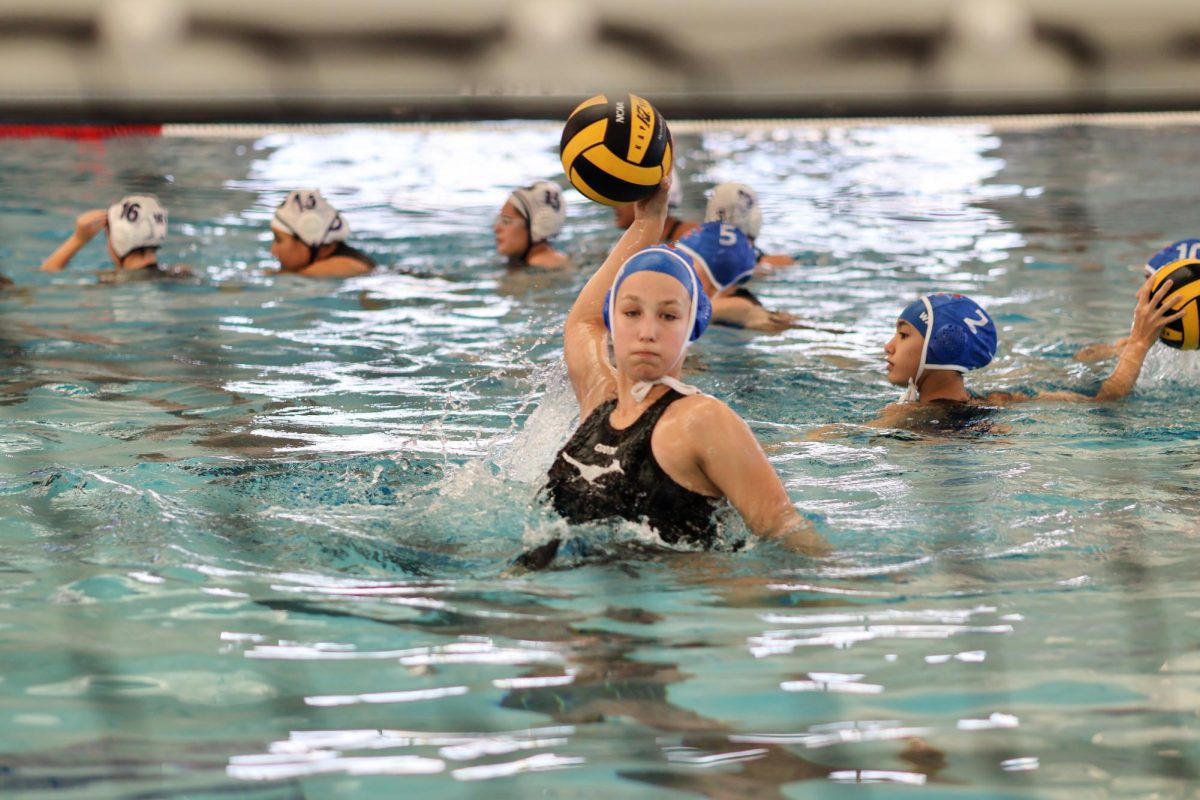Then an eighth grader, Sarika Hegde sits in front of a computer, researching treatments, symptoms and cure rates of colon cancer. Her mother had just been diagnosed with stage IV colon cancer. While her parents frequently traveled for surgeries and chemotherapy, Hegde’s aunt came from India to take care of her brother and her.
Feeling isolated, she didn’t know what to do.
“I didn’t know who I could really talk to,” Hegde said. “I didn’t want to burden my friends with something so heavy and serious since we were all very young, and my brother was too little to fully understand the severity of what was going on.”
Fast forward to May 19, 2025, a few years after her mother’s recovery, Hegde sits alongside two guest speakers, reviewing different software solutions to battle isolation and the many other challenges that come with cancer. These solutions were created earlier in the day by around 30 high school girls from around the Austin area at the first HackHERS hackathon event, an event created by Hegde aiming to create a comfortable environment for girls to learn and develop their coding skills to solve real issues.
“Seeing the girls feel comfortable and confident, proud of their finished products, helping each other and learning together made me feel like [HackHERS] truly had an impact,” Hegde said. “It gave me a sense that we had accomplished the goal of creating a welcoming environment for them to grow their programming skills and break into the fields of computer science and engineering.”
Now a senior, Hegde has her own goals of putting together new ideas in computing and hardware to create more powerful applications of technology, especially in medicine after her own family’s challenges. Hegde also holds a passion for teaching and helping others grow. These two interests came together in the formation of HackHERS which she first began thinking about as a sophomore after her own experiences in computer science and as a programmer for the Westlake Robotics team.
Hegde began programming in seventh grade at a Python coding camp. Drawn to the problem solving aspect of computer science, Hegde took AP Computer Science A and joined Robotics as a freshman. Hegde wanted to “break into comp-sci” and went to a Computer Science Club meeting with the goal of becoming involved in competitions.
However, Hegde sat in the back of the classroom, embarrassed as she struggled to follow the machine learning lesson.
“My face felt hot because I was like ‘What do I do? I don’t know who to talk to,’” Hegde said. “I just got out my iPad and started looking at something random … It seemed like everyone was getting [the lecture] and I wasn’t.”
Surrounded by upperclassmen and unfamiliar students, Hegde was afraid they already saw her “as less intelligent” and worried about further judgement if she asked a question.
“I didn’t feel comfortable asking,” Hegde said. “A learning environment is supposed to be pretty comfortable, and I didn’t feel that way.”
Hegde and some of her friends have discussed the sometimes isolating feeling of being a girl in computer science. Senior Iris Yu, the vice president of Computer Science Club, mentioned that girls in Computer Science Club tend to stick together in the UIL section of the club that she leads rather than splitting between the UIL and AI branches of the club. In Yu’s experience, integrating into different computer science environments (such as different camps or clubs) tends to be easier if there are a couple other girls.
“It makes it a little bit lonely if there aren’t other girls around,” Yu said. “It makes it less fun as a hobby, but it doesn’t make it any less engaging as an individual. It doesn’t change my interest in computer science, but going to the club is less fun then I feel like it would be if there were a larger group [of girls].”
On her freshman robotics team, Hegde was a quieter member of the programming team. However, as time went on, she began to notice the difference confidence made when it came to learning.
“My male counterparts were louder and more comfortable, so they were kind of getting more recognition and that prompted them to keep coming back more and learning more,” Hegde said. “Even if what they were doing wasn’t perfect, they were confident. They would make mistakes and learn from them, and that would improve their abilities in robotics.”
Hegde began to see a difference in her own learning when she was louder. However, she understands the difficulty or fear girls might feel that prevents them from feeling confident, especially in an environment that typically has less girls compared to guys.
“I started realizing that this self-conscious thing that a lot of girls might have of ‘You need to be perfect at what you’re doing’ and you can’t ask questions and make mistakes, restricts your growth in your brain,” Hegde said. “These hackathons, or just any event where a bunch of girls are able to come together and learn together and be comfortable and ask questions, really help us learn and be more confident in this field, which is valuable, needed and increases our success.”
Hegde’s idea to create a space for girls to feel comfortable developing their programming skills began to take shape throughout her sophomore and junior years. She ran smaller Hackathons with the Women in Computer Science Club throughout 10th grade, before planning the larger HackHERS event in 11th grade.
Hegde knew she wanted to have guest speakers and mentors for the event, so she reached out to women in leadership positions through LinkedIn. A Takeda biotech product manager and Amazon digital innovation marketing manager spoke about their journey into tech careers, offered general advice and answered HackHERS participants’ questions.
Hegde also worked out the logistics of the event on her own, creating a schedule, promoting the event and designing the challenges for HackHERS.
When identifying the theme and designing the challenge for the inaugural HackHERS event, Hegde pulled from her own aspirations of utilizing software engineering and programming to find solutions in the medical field. Hegde eventually decided on the prompt the participants of HackHERS May 2025 would tackle: “Your challenge is to create a tech-based solution that raises awareness, offers support or improves access to information related to cancer. Your project should aim to empower individuals affected by it, promote early detection or prevention or provide support to patients and caregivers.”
Based on her own experience with cancer in her family, Hegde hoped to give participants a chance to develop technological solutions to aid patients and their families.
“I’ve seen firsthand how isolating [cancer] can be,” Hegde said. “People don’t feel like they have a real outlet to talk about it or get support … We wanted to give participants a chance to build tech solutions around something personal and impactful … it gave the event a sense of connection beyond just coding.”
Hegde sees new technology in the medical field as “part of the reason we still have [her mother] today.” Her mother’s treatment was part of a clinical trial that involved isolating the chemotherapy so it had a concentrated target and less overall effects on the body. Technology also kept her connected to her parents as they traveled to New York for treatment and directed her to online communities of people also struggling with sick families.
“I would read about other people’s experiences having parents or other close family members affected by cancer or any other disease and it helped me feel less alone, like what I was going through was something other people go through as well,” Hegde said. “I remember reading an essay about how this guy coped with his sister-in-law having cancer and instead of trying to figure out all the medical stuff … [he spent every moment] just connecting with her and spending time and that helped him a lot with coping with that and made me feel like I should do the same.”
These experiences are what led her to the May 2025 HackHERS prompt, and at the event, Hegde encouraged participants to think of applications of computer science that could assist someone who is going through what she and her mother did. Solutions to the prompt included apps for patients to track symptoms or medical schedules, community-based platforms and an app to connect patients and caregivers to emotional support groups.
The inaugural event left Hegde proud of not only the collaboration and confidence between participants, but also the empathy which went into solutions. Hegde aims to continue the HackHERS event, promoting girls’ involvement in computer science and engineering while applying the skills to broader problems, such as mental health at the upcoming Oct. 18 HackHERS event.
“I hope more girls start seeing tech as a place for them,” Hegde said. “You don’t have to be the loudest voice in the room or have everything figured out. You just have to be curious, willing to try and open to learning.”







